|
Jolie is finally growing her director roots by delivering an intense and dramatic real life film of the late Louis “Louie” Zamperini. This Olympic runner-turned-prisoner is a powerful true story that everyone should see and hear. Putting passion in every frame throughout the film, Jolie molds the plot around Zamperini’s brutality and solitude he faced as a WWII Prisoner of War (POW). Sadly, Zamperini pasted last July from pneumonia, at 97. However, Jolie did get the chance to show him a rough cut of his life on film from her laptop. Scriptwriters (The Coen brothers, Richard LaGravenese and William Nicholson) adapt Lauren Hillenbrand’s 2010 bestseller of Louie’s heroic journey to the big screen. Louie is the son of Italian immigrants, raised in Torrance, California. Set out to be a misfit in society, Louie is destined for jail. That is, until his older brother, Pete, focuses on his younger brother's strengths … running. He ends up turning into an all-American track star and competes in the 1936 Olympics in Berlin. During the second war, Louie enlists in the Army Air Corps. But life spirals out of control when his B-24 goes down in the Pacific. Louie and his surviving crew are abandoned at sea on rafts for 47 excruciating days. Life gets even worst for Louie and his crew when their raft comes upon a Japanese ship. From there, Louie’s humanity is stripped away little by little. He was captured, starved and tortured for two years in the Japanese POW camps. The remainder of the film focuses on the brutality as a POW. The book goes on to talk about Louie’s life after the war as well. From PTSD to alcoholism to converted Christian, Zamperini’s life is inspirational. However, Jolie decided to cut that part of the book to focus more on the courage and bravery Louie had as a POW. This was a big part that I wished Jolie could have shown in the film, but I understood her choice she made for the film’s purpose. If anything, after seeing this film it encourages you to go out and research more about Zamperini’s life and read Hillenbrand’s book. As for casting, Jolie made some grand chooses in picking compelling actors (Jack O’Connell, Domhnall Gleeson, Miyavi, Finn Wittrock, Jai Courtney and Alex Russell). O’Connell does a superb job at masking Zamperini’s humanness. He gives a raw and vital performance of a human being who never gave up. Backed by his performance is Jolie’s fresh direction and skilled craftsmanship. Though Jolie does push the envelope on brutal violence quiet often, still Unbroken’s message is never forgotten or overshadowed. Earning every bit of its hard PG-13 rating, Unbroken strips away at the audience’s core until their bones are numb. In the end, Jolie still surfaces enough heart and power to get Louie’s moving life story out to the public. It’s a fitting tribute to a man that kept on running. Even when this film falls, you keep cheering for it to get back up and keep pushing. So damn the imperfections, Unbroken has heart.
1 Comment
From television sitcom, Growing Pains, to the unbearable hooky Christian films, Kirk Cameron and his ego need to leave the acting business now. Grinding my teeth while I write this review, I will break it down into two parts: a cinematical perspective and an ideological perspective. Barely 80 minutes long, Kirk Cameron's Saving Christmas feels more like a poorly made project by a high school AV class on amateur hour. Cameron and his group of heathens give us probably one of the least joyful holiday film ever made. The film is shot, written and acted so inadequately, you’re numb by the end of the 80 minutes. With stiff performances, flat jokes and an overlong dance sequence/ hip-hop number of “Angels We Have Heard on High,” Saving Christmas is one of the worst films of 2014. A little part of you dies inside. Director and co-writer, Darren Doane sends us to a Christmas party where we meet him as a character, conveniently named Christian, who is angry with the way Christmas has become. At this cheerful party, we see jolly kids running around, a man dressed up as Santa, a stereotypically cheeky black friend and Kirk Cameron! Good gracious. Cameron wants to know why his brother-in-law, Christian, is so upset during the holiday season. Most of the film, I kid you not, takes place in a car with two guys babbling on and on. Christian is upset because Christmas apparently, to him, has turned into a materialistic orgy. He says that there is no reference to Christmas trees or Santa Claus in the Bible because they are all pagan traditions. Have no fear! Kirk Cameron is here! Cameron then proceeds to explain to Christian that the Christmas tree and Santa are, in fact, in the Bible. Apparently, these pagan traditions of Mr. Claus and the trees are just a myth. So, Cameron hams away at selective Scripture trying to prove his point to Christian. Don’t mind the religious and historical teachings that prove Cameron’s arguments are obviously invalid and wrong. Nothing will get past Cameron’s thick skull, so just nod your head and move on. I am not lying when I tell you that this film is beyond awful … it’s down right ludicrous! Not to mention the film received five Razzie Awards, including Worst Picture, Director, Screenplay, Actor and Screen Combo (Cameron and his ego). So, what would kill you first, drinking rotten eggnog or enduring another Kirk Cameron film? Let me just say, I’ll take my chances with the eggnog. Director James Marsh (Man on Wire) captures the miracle story of well-known British theoretical physicist and cosmologist, Stephen Hawking, in The Theory of Everything. There to help support the film are his two competent leads, Redmayne and Felicity Jones. After being diagnosed in the ‘60s with motor neurological disease (often related to ALS or Lou Gehrig's Disease), Hawking (Redmayne) is cheated from his movement and speech. But that doesn’t stop his brain from working as it races through time and space, trying to solve the unsolved mysteries of the universe. Redmayne gives the performance of a lifetime as we see his profound physical transformation take place throughout the film. Hawking is jailed to a motorized wheelchair and wants to move with every fibre of his being. Redmayne embodies every part of this horrific disease as his battles hurtle over hurtle over hurtle. Being nominated an Oscar, Best Actor in a Leading Role, Redmayne has a good chance at being the surprise winner this February. Watch out Keaton (favored for Birdman), Redmayne may upset and snag your award. There right by Hawking’s side is his loyal companion and wife, Jane Wilde Hawking (Jones). Has she did in Like Crazy, Jones deepens her physical character and grabs hold of your heart. Redmayne and Jones’ chemistry blooms on screen as they mature through hardships, emotions, love and life. This emotionally charged film is backed by Marsh’s touching direction. He scraps the violin and sap and focuses on the miracle behind this life changing disease. Scriptwriter Anthony McCarten adapts Wilde’s own memoir, Travelling to Infinity: My Life with Stephen, perfectly to the screen; while, cinematographer Benoît Delhomme (Lawless) polishes every corner of this film with his skilled expertise. Redmayne and Jones’ are revolutionary as we see 25 years of marriage rapidly grow, wither and dissolve in a the blink of an eye. Marsh just doesn’t focus on Stephen’s struggles but Jane’s as well. This disease put a toll on her health as she continuously cared for her husband’s deteriorating condition. Jane’s view of God plays a toll on their marriage, as Stephen doesn’t share the same belief. And in the end, Stephen’s affections for Jane slowly fade away as he beings to develop feelings for his nurse, Elaine (Maxine Peake). But through Jane and Stephen's marriage we still saw love blossom and produce three beautiful lives. “Look what we made,” Stephen says to Jane. Even though their marriage is no more, their friendship will last a lifetime. The Theory of Everything captures your heart and shows us hope within the human condition. “While there’s life, there is hope.” With the Oscar nominations arriving this morning everyone in Hollywood is gearing up for this February. Being engulfed with nothing more than a life of film, I will break down my top Oscar predictions (Picture, Directing, Lead Roles, Supporting Roles, Screenplays and Animated Feature) for 2014. My first pick for Best Animated Feature would have been, hands down, The Lego Movie, but since it wasn’t nominated I’ll have to go with my number two, How to Train Your Dragon 2. For Best Writing, Screenplay Written Directly for the Screen, I have to go with, The Grand Budapest Hotel. Wes Anderson is a wiz at originality, but I could see Birdman sneaking in for the steal like it did at the Golden Globes. For Best Writing, Screenplay Based on Material Previously Produced or Published, I am choosing, The Imitation Game. This was a hard one for me because Whiplash and The Theory of Everything were also in this category for grandeur writing, however, The Imitation Game finally told us Alan Turing’s courageous story of how he and his crew cracked enigma, ended the WWII by two years and saved an estimated 14 million lives. It was a true crowd-pleaser of 2014!
For Best Performance by an Actress in a Supporting Role will be Patricia Arquette for Boyhood. Her performance matured tremendously over those 12 years it took to make and she deserved every bit of screen time that she got. J.K. Simmons has my pick for Best Performance by an Actor in a Supporting Role for Whiplash. His presence was nauseous and potent. Simmons verbally and physically pushes his students to greatness in the film. It’s a modern day Full Metal Jacket of jazz. For Actress in a Leading Role, Rosamund Pike (Gone Girl) has my pick … fingers crossed! But I have a feeling that Julianne Moore (Still Alice) will take it since she’s the clear favorite here. The superb and groundbreaking Michael Keaton will win Leading Role for an Actor. This was a career comeback for him in Birdman and he gives his best performance of his career. Although, I could see Eddie Redmayne (The Theory of Everything) with the surprise win as he did with the Golden Globes. As for directing it came down two talented artists, Richard Linklater and Alejandro González Iñárritu. Both deserve every right to receive the Oscar, however, I have to go with Linklater because his Boyhood was a visually stunning gem that blossomed on screen. Finally, that leaves me with Best Picture of the Year, and the clear winner will and always has been Boyhood! It was by far the best film of 2014. We follow the fictional story of Mason (Ellar Coltrane) from childhood to adulthood. It’s a 12-year epic time capsule that truly moved me. Now, it’s time to rant on and slam the Academy for failing to nominate an overwhelmingly high amount of talent. Sadly, there will always be snubs, some years more than others. Given the fact how competitive 2014, was it’s no surprise how many actors, directors and or films were snubbed at the end. Jake Gyllenhaal failed to get recognized for his shockingly good performance as a sociopath. Not to mention, Nightcrawler only got one Oscar nom for Best Writing, Screenplay Written Directly for the Screen. Chadwick Boseman in the James Brown biopic Get on Up, Amy Adams in Big Eyes and Miles Teller in Whiplash also failed to get any recognition. Then there’s Gone Girl, which somehow only managed to scrape up one nomination for Best Performance by an Actress in a Leading Role (Pike). How? I don’t know I am still trying to figure this one out. Director David Fincher and his skilled craftsmanship were completely forgotten about. Along side him was Gillian Flynn, who adapted her own critically acclaimed book into an eerie screenplay. Next, there’s Selma, which did receive the Best Picture nom, but the Academy overlooked David Oyelowo’s masterful performance, as Martin Luther King Jr. Ava Duvernay also could have been the first African American woman nominated for Best Director in the Academy’s 87 years. Her film proved that she was among the elite in the director’s chair, but nothing came … did Selma directs itself, Academy? There were so many outstanding performances by African American’s (Oyelowo, Boseman, Chris Rock, Carmen Ejogo and Gugu Mbatha-Raw) this year, it’s hard not to see a single one of them get nominated. And sadly, everything was not awesome for The Lego Movie, by being ignored for Best Animated Feature. It was one of the funniest and most critical acclaimed films of the year! Where’s the Oscar love? It was an animated satire on commercialism and product placement, with Lego’s … come on! Finally, there’s Unbroken, which had its flaws but was still a well-made piece of work. It received three noms (Best Achievement in Cinematography, Sound Mixing and Sound Editing) but passed Angelina Jolie for Best Director and Jack O’Connell for Best Actor, sad. In the end, it was a fantastic year in filmmaking and with that, of course, will always come the snubs. But just as they have since the days of film classics like Gone with the Wind (which won Best Picture in 1940), the people of the Academy are probably sitting back in their cozy chairs with their good cup of joe right now, ignoring critics like myself and wanting to tell us all, “Frankly my dear I don’t give a damn.” From stage to the big screen — Into the Woods belts out some catchy and slightly annoying show tunes. Believe me, these songs will be stuck in your head all damn day. But the musically star-struck talent (Meryl Streep, Emily Blunt, James Corden, Anna Kendrick, Chris Pine, Daniel Huttlestone, Lilla Crowford, and Johnny Deep) helped mostly uphold the film overall. Director Rob Marshall (Chicago) goes back to his Broadway roots, adapting Stephen Sondheim and James Lapine’s highly known adult fairy tale. Even with its PG rating, Into the Woods is still undeniably dark. The plot interweaves familiar tales of Little Red Riding Hood, Jack, and the Beanstalk, Rapunzel, and Cinderella to revolve around a lonesome Baker (Corden) and his beautiful wife (the wonderful Blunt); who is longing for a child, in this fantasy crossover. Bam! Enter the Witch (Streep, marvelous as ever) from next door. And does she make an entrance! Her tremendous presence overpowers the crowd with oohs and awes. Streep has continued to add to her hefty list of nominations by receiving her 29th Golden Globe nom for this film. With her blue hair and gothic entire, Streep is capable of all kinds of magic, good or bad. Like this movie musical, there are good parts and there are bad parts. The Witch tells the Baker that she put a spell on his family years prior — when she discovered his father stole from her precious garden. The items were magic beans, and the Baker discovers them, conveniently enough, in his father’s old coat pocket. As you can guess, those beans make their way into the hands of a young boy named Jack (Huttlestone). This is where the other characters come into play, and we are off into those alluring woods! Into the Woods hits the notes and, at times, can be a bit drowning with its over-the-top in-your-face numbers. Kendrick gives us a different take as the runaway maiden, Cinderella, by adding a timid side to her character. Deep comes in for about 20 minutes to deliver a spooky performance as the Big Bad Wolf. Pine sweeps in as the seductive prince and is downright hilarious every time he makes a screen appearance. The brother’s duet (Pine and Billy Magnussen) “Agony" is killer funny — probably the most entertaining number in the film. And finally, that leaves us with Corden and Blunt, who are the heart of this story. The final act gets a bit shaky and veers off the path. In the end, Into the Woods will be a mostly fun adventure for some and dreadful for others. Inspired by a fascinating true story, Cumberbatch (Emmy winner from BBC’s Sherlock) and his team of expert cryptanalysts crack the Nazi code to help end the war. Its fresh, emotional and eloquent, a true crowd pleasure of 2014. Cumberbatch takes on genius mathematician, Alan Turing. Socially awkward but inevitably smart, Turing travels to London’s Bletchley Park during World War II and gets help from a loyal crew to solve enigma. They did and helped stop the war by two years and saved an estimated 14 million lives because of their determined work. Unfortunately, this was unknown for 50 years because of government secrecy. As for Turing and his crew, they had to burn all of their achievements they had accomplished over the years. And Turning was later persecuted by the British government for his homosexuality because back then it was considered a crime. Sadly, in 1954 he ended his own life because of the persecution against his sexuality. It took a number of years but Turing finally got the respect that he deserved for all of his hard and compassionate work in life. Newcomer Graham Moore writes us a grand spy thriller full of raw emotion and inspiration. He doesn’t dwell over the social treachery by the British government on Turing; instead he focuses on Turing’s story as a human being willing to save millions. Backed by Turing are his devoted group of companions, Hugh Alexander (a decorous Matthew Goode), John Cairncross (Allen Leech) and Peter Hilton (Matthew Beard). The later game-changer to join the team is Joan Clarke (an outstanding Keira Knightley). Cumberbatch and Knightley’s chemistry is an instant spark and Norwegian director Morten Tyldum (Headhunters) helps layer their characters with charm and creativity. These two are terrific to watch on screen together and become even more delightful when Turing ask Clarke for her hand in marriage. Once Turing sees the slowness of human hands on trying to crack enigma its off to the pen and paper to come up with a different plan. He creates the first artificial intelligence we now know as a computer. In real life he called it Bombe, but in the film he names the machine Christopher (I won’t spoil for reasons why). Christopher’s wired brain will help the British solve the mystery lying within enigma. The Nazi’s changed the codes every 24 hours, but once Turing finally got all the kinks knocked out of his code breaker its off to the races. Cumberbatch is breathtaking as the genius behind the numbers. Giving us one of his best and most heartfelt performances of his career thus far. It’s intoxicating to watch him perform on screen. I’m smelling an Oscar nom for him this coming February. In the end, The Imitation Game gets the job done and rightfully tells us this arousing story of a group of people putting their minds together to end the war. It will make you laugh, it will make you cry, but most importantly it will make you see the beauty lying within the human mind and the amazing sacrifices it will make for others. The Imitation Game is a crowd pleasure and a grade ‘A’ game-changer that helped send 2014 out on a high note. Cheers mate! This slow-burning true-crime drama catches you when you least expect it and that’s why Foxcatcher is one of 2014’s very best films. Director Bennett Miller (Capote and Moneyball) exposes the horrors within the wrestling world as humans strive for excellence. Miller is always one step ahead of the game as he explores wrestling, wealth, betrayal and murder. It’s a memorizing piece of work that is backed by three triumphant leads (Steve Carell, Channing Tatum and Mark Ruffalo). Tatum plays Mark Schultz, a 1984 Olympic gold medalist for wrestling. Tatum is at the top of his domain giving us a passionate but determined performance. Unfortunately, Mark as lived under the shadows of his older brother, Dave (a solemn Ruffalo), for too long. Both brothers are gold medalist but Mark lacks the social skills and the family life that Dave as (two kids and a wife played by Sienna Miller). Mark needs to find himself away from the protective care of his loving brother, enter Jon du Pont (an ingenious Carell). Du Pont is a Pennsylvania born aristocrat who offers to take Mark in and turn him into a champion. Mark agrees and without knowing enters into a world of madness and paranoia at Foxcatcher farms. Scriptwriters Dan Futterman (Capote) and E. Max Frye tell us a disturbing but compelling story of wrestling and tragedy. Du Pont helps train Mark for the 1988 Olympics is Seoul. Carell gives us his tour de force as the sly menace waiting to pounce on its prey. This is a monumental breakthrough for him in his acting career. Carell will definitely get an Oscar nom this February and rightfully deserves the nomination. From the fake nose to the uncanny stares to the capitalistic view of the American dream, Carell does it all without missing a beat. Carell gives a victorious portrayal of a man hunted by mental illness and his mother’s disapproval of his beloved sport. Foxcatcher is gripping, keeping you on the edge of the mat from start to finish. Miller takes us to dark corners studying damage men who will do anything to achieve their goal. This psychological thriller will go to depths beyond its own, showing the value of a human life and striving us to analyze our own lives. As Mark continuously gets knocked down and thrown around he never gives up and is determined to keep fighting, Foxcatcher does the same making is one of the years most memorable films. The comedy that North Korea never wanted you to see is finally out! And anything to make Kim Jong-Un pissed is worth the ticket price alone. Now, I don’t get me wrong I don't want to get blow up in a movie theater as much as the next person, but thank you Sony for manning up! Sony finally decided to get their head out of the sand and stopped negotiating with terrorist known as the Guardians of Peace. While the hype may have over killed The Interview, Seth Rogen and James Franco’s bromance is irresistible. Ironically, with all of North Korea’s hissy fit over this film it has turned The Interview into the movie event of the year and for reasons that have nothing to do with the film itself. This is a hard burden for any political satire to carry out and of course The Interview won’t succeed, but it will die trying. And The Interview needs all of our support to show that freedom of speech still matters. Even when most of the jokes fall flat you can’t help but cheer Rogen and Franco on. So here’s the plot: Dave Skylark (a Seacrest-ish Franco) is a pretty boy talk show host of a cable tabloid called Skylark Tonight. His super chill producer, Aaron Rapoport (Rogen), keeps him inline. The film really kicks in when they find out that Kim is a huge fan of the show and score big by landing an interview with the mysterious dictator. Cue the C.I.A. and agent Lacey (Lizzy Caplan, fabulous as ever) who want the boys to take out the big guy. It’s crazy. It’s impossible. It’s well another Rogen movie. Hey, if Chaplin could impersonate Hitler (The Great Dictator) and Tarantino could kill Hitler (Inglourious Basterds), then Rogen and Franco can blow up Kim while listening to Katy Perry, dammit! So it’s off to North Korea where Rogen and Franco become some of the dumbest 00’s ever to exist. But in comes Kim (Randall Park) whose hip, swag and smoking a stogie. Park does a grand job impersonating Kim, giving him his own witty personality. Kim loves listening to Perry and drinking margaritas in his down time. Park’s performance alone made the movie for me. Yes, jokes will fall flat in this film but some scenes (Eminem coming out scene, Dave and Kim’s tank scene and the tiger scene) are killer funny. This is not director Evan Goldberg and Rogen’s (This Is the End) best comedy but it’s still worth seeing. Although, I wish there could have been more Caplan and more Rogen/Franco bromance shown throughout. But this political satire still works. The Interview is not the best comedy, far from it, but it’s one to kick back with your buddies and get a decent laugh in. It’s Goldberg and Rogen’s ambition and lampooning that makes this film a wild ride. Yes, many times they take jokes and situations way too far but that’s ok. Sorry, North Korea if you can’t take a joke but lighten up a bit. As for the real Kim just sit back listen to some Perry and drink a margarita while you’re at it. I’m sure you’ll enjoy it.
Director Peter Jackson ends his second Middle Earth trilogy on an unfashionably relentless low note. We all know prequels are a burden and George Lucas learned the hard way with his Star Wars prequel trilogy. Now, Jackson goes the same route with The Hobbit trilogy. But where Lucas’ films got progressively better towards the end of the trilogy, sadly, Jackson’s films got progressively worst the more we stayed in Middle Earth. J.R.R. Tolkien’s The Hobbit is a very slim book and was never meant to be three films. Sorry, LOTR fans it just wasn’t. But Jackson gave it to you nerds anyway because you’ll eat it up at the box office. Trust me, I tired to stay optimistic throughout each film and knew going into it that it would not live up to Jackson’s critically acclaimed and beloved Lord of the Rings trilogy. But why would you focus on the third-to-last chapter of the book and turn it into bloated CGI fighting? And when the clock hit the 45 minute mark I about lost my sanity. I know Jackson was taking an incredibly slow pace to tell the story through the first two films but this one was completely milked of any story. Where the first chapter (An Unexpected Journey) dragged its ass to finally start the journey at least there was charm and a since of the old LOTR feel. Plus, we got another great performance by the masterful Andy Serkis as Gollum. And where the second chapter (The Desolation of Smaug) got caught up on “middle chapter narrative” problems at least there was that roaring dragon (Benedict Cumberbatch) at the end to save the day. But the third chapter is not even worthy enough to be apart of this series. It was just one ridiculous fight scene so that Jackson could rack in more doe. At the start of the third film Smaug (Cumberbatch) is pissed off and reeking havoc onto the pitiful residence of Laketown. Smaug dazzles us by swooping down on the town and fueling fire in everything he sees. But the fierce heroism of Bard (Luke Evans) comes to the rescue and slays the dragon with the black arrow. Smaug is dead, the battle has been won and Bilbo (Martin Freeman) can finally go home now! Cue title card: “The Battle of the Five Armies” damn. With Smaug out of the picture everyone (dwarves, elves, men and Orcs) races for the mountaintop to claim his or her share of the treasure. But Jackson has nothing left up his sleeves and slums down to a brain dead plot or should I say plots of war mania. Jackson looses focus of the book’s main theme and forgets that this is Bilbo’s story we are following not his. As for the meaty cast (Freeman, Cumberbatch, Evans, Ian McKellen, Richard Armitage, Evangeline Lilly, Lee Pace, Ken Stott, James Nesbitt, Cate Blanchett, Ian Holm, Christopher Lee, Hugo Weaving and Orlando Bloom), they do their best with what scriptwriters (Jackson, Fran Walsh and Phillppa Boyens) give them. Freeman was always the right pick as Bilbo and still continued to bring charm and wit to his character. Sadly, we don’t get to see enough of him in this last film like we should. McKellen has and will always be Gandalf the Grey. Some of the best scenes in the film are Gandalf and Bilbo sitting on the mountaintop together. Lilly and Armitage were another highlight of the film as Tauriel and Thorin. Unfortunately, that is not enough to up hold the rest of the film’s baggage. Now, don’t get me wrong this was very well filmed but it lacked the heart of the original LOTR trilogy and even the heart of the first two Hobbit films. The Hobbit is not meant to be dark or gritty because it was a children’s book. It was supposed to sweep you off your feet and take you on an adventure not drain you until the point of exhaustion like this film did. All of this over-the-top wow moments were not very exhilarating. They were completely preposterous and made the film slip into hilarity. And halfway through the battle the film proceeds to turn into an unexpected comedy (pun intended). From kung fu Saruman the White (92-year-old, Lee), to Legolas (Bloom) swinging on bats in mid flight, to Galadriel (Blanchett) turning green and back to Bloom defying gravity, literally, by running vertically up in the air on falling stones. This is where I gave up in the film. Plus, one of the most pain in the ass performances by Ryan Gage as Alfrid in recent memory. Backed by Jackson’s lack of direction, plot and lost of theme, The Hobbit: Battle of the Five Armies can’t live up to its classic source of material. All of this led to an overwhelmingly disappointing final chapter. Yes, it might seem hard right now but I assure you that I am a LOTR fan and have been ever since I picked up Tolkien’s The Hobbit in grade school and read it. The Hobbit was my favorite of Middle Earth because it drew me into Bilbo’s since of adventure and excitement. I have held it close to my heart like a Bible ever since. The Lord of the Rings book and film trilogy will also hold a special place in my heart as well. And The Hobbit trilogy will be easily forgotten over the years to come. Ok Mr. Jackson, you’ve had your fun in Middle Earth, now please leave and never return. The Hobbit will always be best experienced in the hands of a reader using their imagination. All directors go through a bit of a roller coaster at some point in their careers and director Ridley Scott has been on that roller coaster every since his Gladiator won five Oscars, including Best Picture, in 2001. Since then, we have seen the good (Black Hawk Down and American Gangster), the bad (Body of Lies and Robin Hood) and the ugly (The Counselor) from him. Where does Mr. Scott’s version of Moses fall into place? We will find out. If there is anything that we have learned from Biblical epics in 2014 (Noah and Exodus), it’s that Hollywood is done with preaching Sunday school films. They want films that show us the grit and the human side of these prophets because they were, in fact, human. Of course they had flaws! And if that pisses you religious bigots off then take a hike because Hollywood is on to something here. Now, with that being said there will be trial and error (creative license) within these films. Both Noah and Exodus showed strengths and weaknesses throughout their film. Director Darren Aronofsky (Black Swan) took a more artistic and poetic approach to the story of Noah, while Scott took the visual effects route for the story of Moses. Both of these approaches had their pros and cons within the films. But, in my opinion, Aronofsky’s vision was more effective. Lets break down what Mr. Scott got right in Exodus: Gods and Kings and what he could of approved on. We all know and love Cecil B. DeMille’s The Ten Commandments, which showed us a grade ‘A’ Biblical epic on the story of Moses. Scott already knew going into this that he had his work cut out for him. But Mr. Scott grabbed an all-star cast (Christian Bale, Joel Edgerton, John Turturro, Aaron Paul, Ben Mendelsohn, Sigourney Weaver and Ben Kingsley) and an Academy Award winning scriptwriter, Steven Zaillian (Schindler’s List, American Gangster, Moneyball and The Girl with the Dragon Tattoo). On top of that, he also picked up a superior cinematographer Dariusz Wolski (Sweeney Todd and Prometheus) and musically adept Alberto Iglesias (Tinker Tailor Soldier Spy and The Kite Runner) to compose the film. The film begins without the back-story of Moses’ childhood; instead Scott throws our two victors (Moses, played by Bale and Ramesses, played by Edgerton) into the midst of battle. This epic battle was well choreographed, but completely pointless to Moses’ story. Let be honest, Scott only threw the battle sequence in there because well he’s Ridley Scott. He did the same thing in Gladiator and Kingdom of Heaven. After the generic battle scene, we head to Egypt where the Hebrews have been enslaved for 400 years. Here, Scott gives us the best depiction of Egypt I have ever seen. Gold, there's gold everywhere and it's spectacular. Bale does a decedent job with his interpretation as Moses. He’s no Heston, but I loved how Bale focused on his struggles in his faith with God. This gave us a since of realism and that Moses had flaws as well. Scott also focused on Ramesses and Moses’ relationship as brothers. This was a strong aspect within the film’s core. I believe Scott did this because of the passing of his younger brother, Tony Scott (also a director). But once Ramesses found out that Moses was a Hebrew it’s exile for him, which is where the heart of the story begins. Edgerton does an outstanding job in his portrayal as the ruthless leader, but even through all of his anger and hatred Ramesses still has a heart deep down. He shows his compassion for his beloved infant son. Edgerton brings wrath and heart to the table. Yes, there’s still the burning bush and the epic plagues that come in a sweep Egypt off its feet. Of course, Scott took in his creative license for his interpretation of having Moses see God envisioned as an 11-year-old boy (Issac Andrews). Malak (Andrews) is an angel or messenger of the Lord and talks to Moses throughout the entire film. Many people were turned off by this interpretation but I loved it. It gave us a face for Moses to look at and to talk to, rather than God speaking down from the heavens. Kudos to the little guy who blew everyone else out of the water in this film because whenever his presence was on screen he stole the show. Even the simple line of “I Am” gave you chills. The strongest aspect of Scott’s Exodus was the ten plagues that God sent to Egypt. Scott’s tour de force comes out with his visual wonders sweeping everyone away. If anything, see this film for the awe worthy plagues because that alone is worth the ticket price. But with all of these skilled experts behind Scott, how did he still miss the mark in some places throughout the film? The answer lies with Scott getting too carried away with his special effects and focusing more on the visuals instead of the character development. At times, the cast is visually overshadowed and these glorious jaw-dropping effects leave them strained in the desert searching for the promise land. Scott also wastes his supporting cast consisting of Paul, Kingsley and Weaver. Weaver plays Ramesses’ mother and for the first 30 minutes she says absolutely nothing! Scott zooms the camera on her various times like she’s going to say something but nothing comes. I know Scott loves having Weaver in all of his films, but make her character more prominent. Next, there’s Kingsley who gives his famous speech to Moses (Bale) about who he really is and basically disappears after that. And then there is Paul who plays Joshua. All Joshua does is sit and gaze behind a bush at Moses as he’s talking to God. He barely gets five lines said within the film. There was also some added fight scenes where Moses tries to get the Hebrews to fight back against the Egyptians using infantry, which was completely silly. Finally, after all of the astonishing plagues there was the parting of the Red Sea, which wasn’t really parted by Moses. Instead, Scott uses more of a low tide to make the water recede. This was underwhelming and didn’t have the same pizzazz that the plagues had. Overall, Exodus: Gods and Kings wasn’t a great version of Moses’ story but a decent one. In the end, Scott had some good elements and some bad elements in his film. This was not his best film since Gladiator nor was it his worst, far from it. And if you were mad or unsatisfied with this version of Moses because it wasn’t your sweet cup of Christian coffee, that’s fine, just move on. I’m curious what other Biblical stories Hollywood has in store for the future? |
Ryan Arnold
Welcome to For Your Consideration:
akajeannette Analysing Horror w/ Lauren Awards Season Blog Candid Cinema Cinefied Cinemania World The Cinematique CRP Writes Cup Of Soul Show Ephie Female Gaze: The Film Club Filmotomy Film Posers From the Front Row In Their Own League Insert Montage InSession Film Jacob Throneberry Latinx Lens Loud and Clear Film Reviews Maggie Lovitt Mashley at the Movies The Mendez Movie Report Mike, Mike, and Oscar The Movie Oracle Ms. Marya E. Gates Next Best Picture Offscreen Central The Oscar Expert Rachel's Reviews Reel and Roll Films Rendy Reviews Reos Positive POV Ripe Banana Shaurya Chawla ShuffleOnline The SoBros Network Strange Harbors Tasha Jagger Untitled Cinema Gals Project Movie ReviewsArchives
March 2024
|
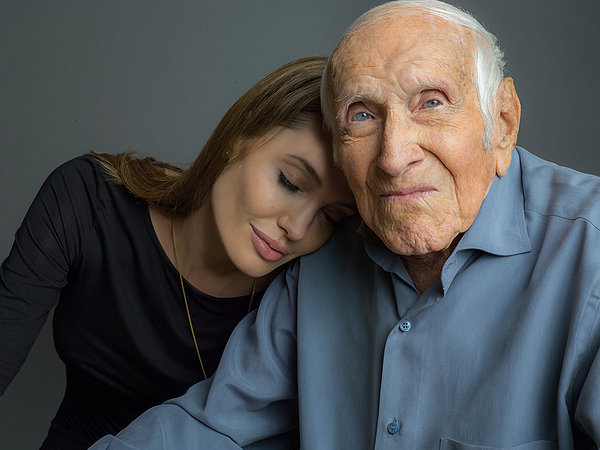
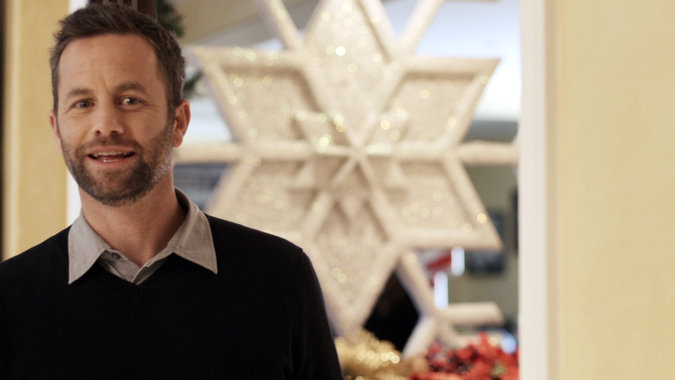
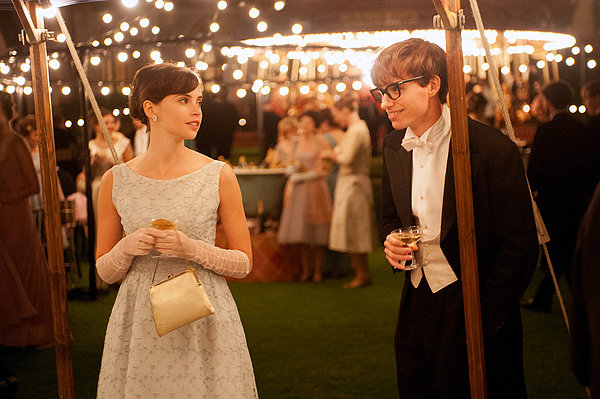
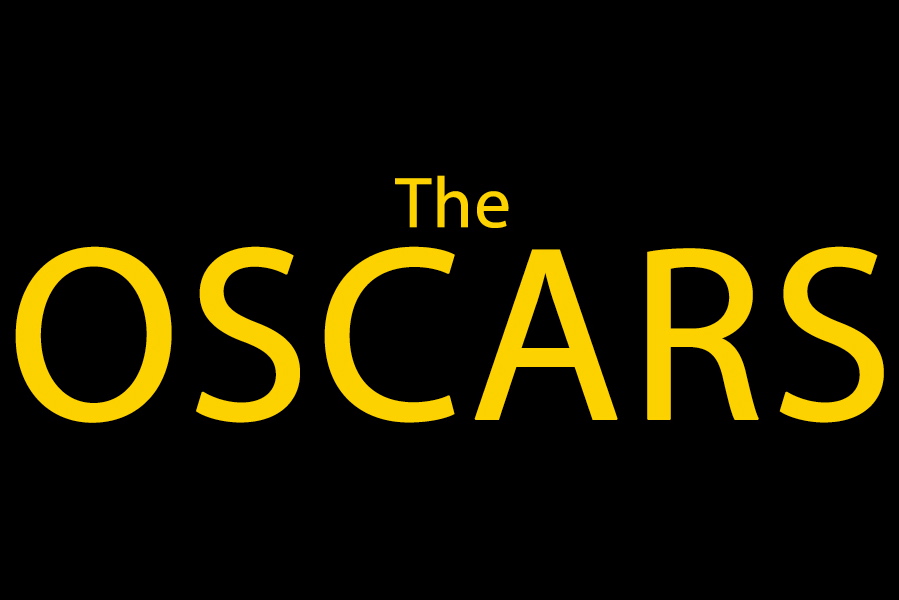
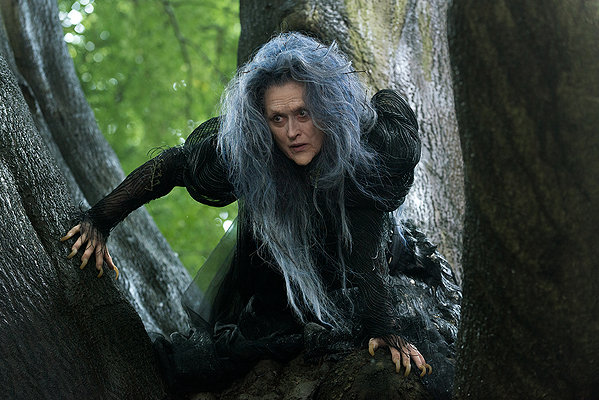
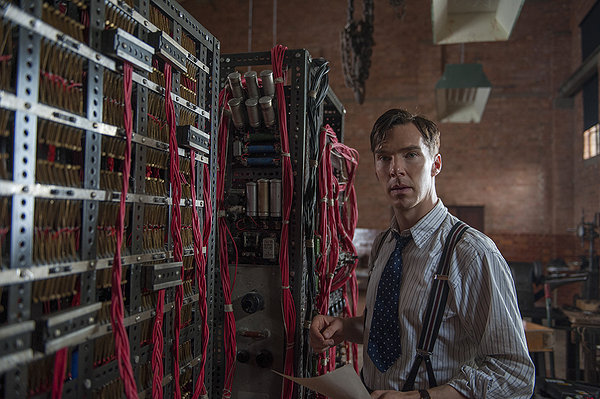
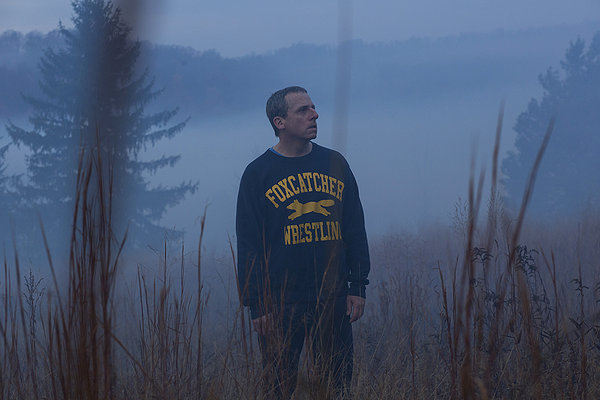
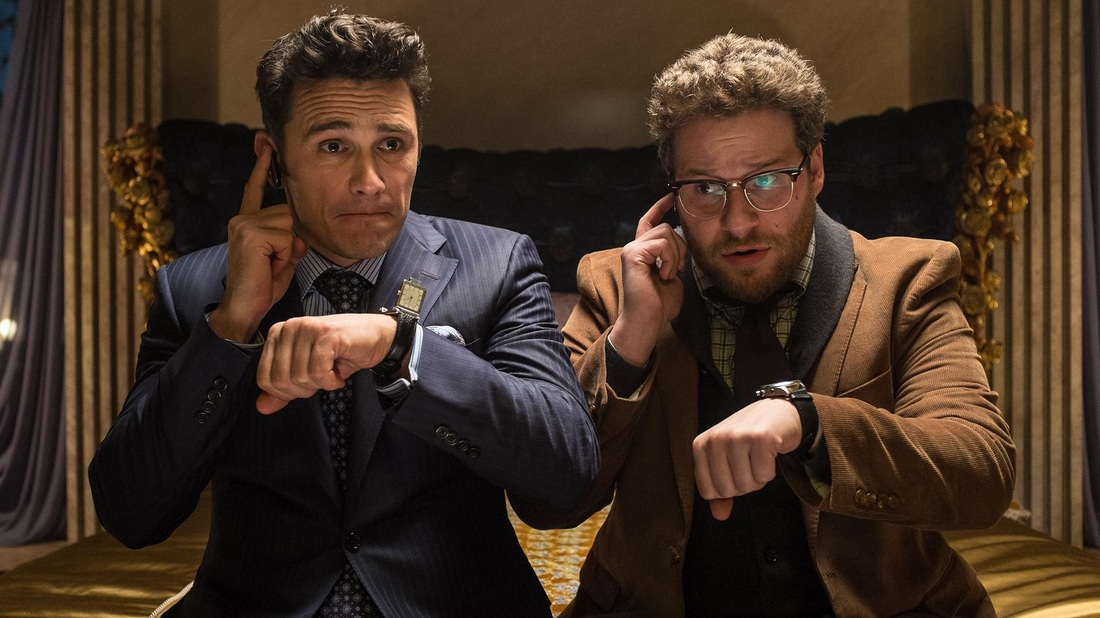
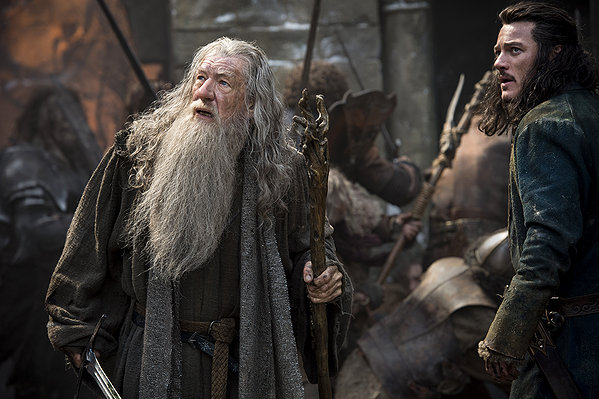
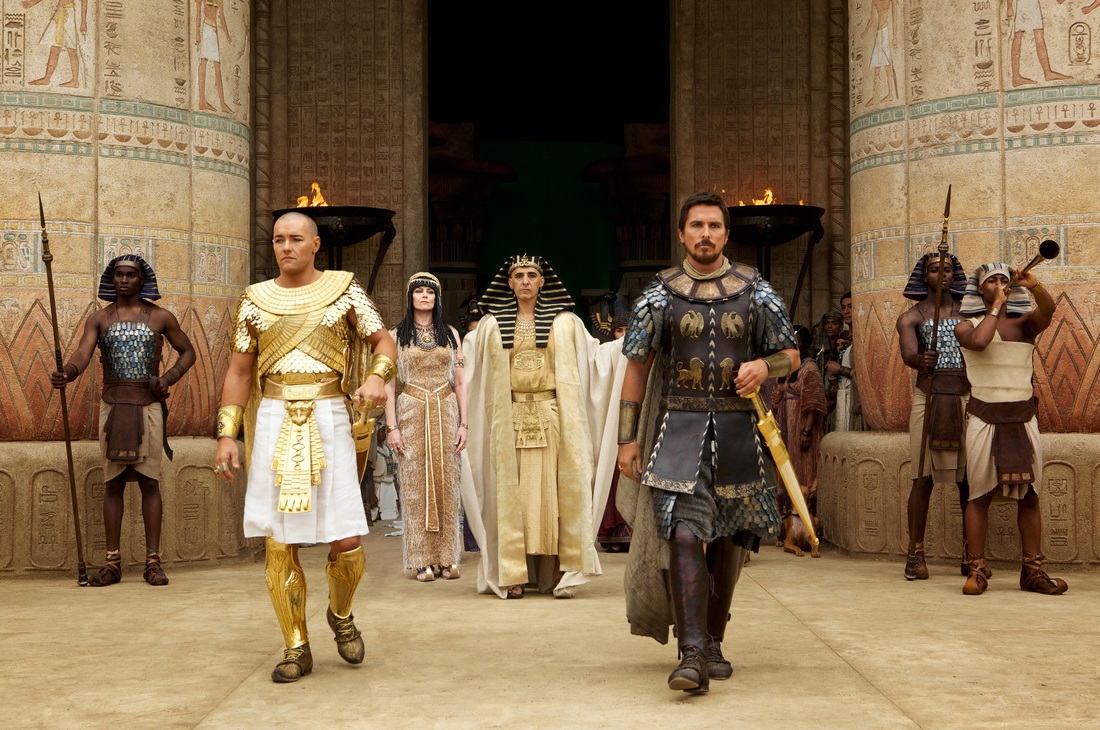

 RSS Feed
RSS Feed
